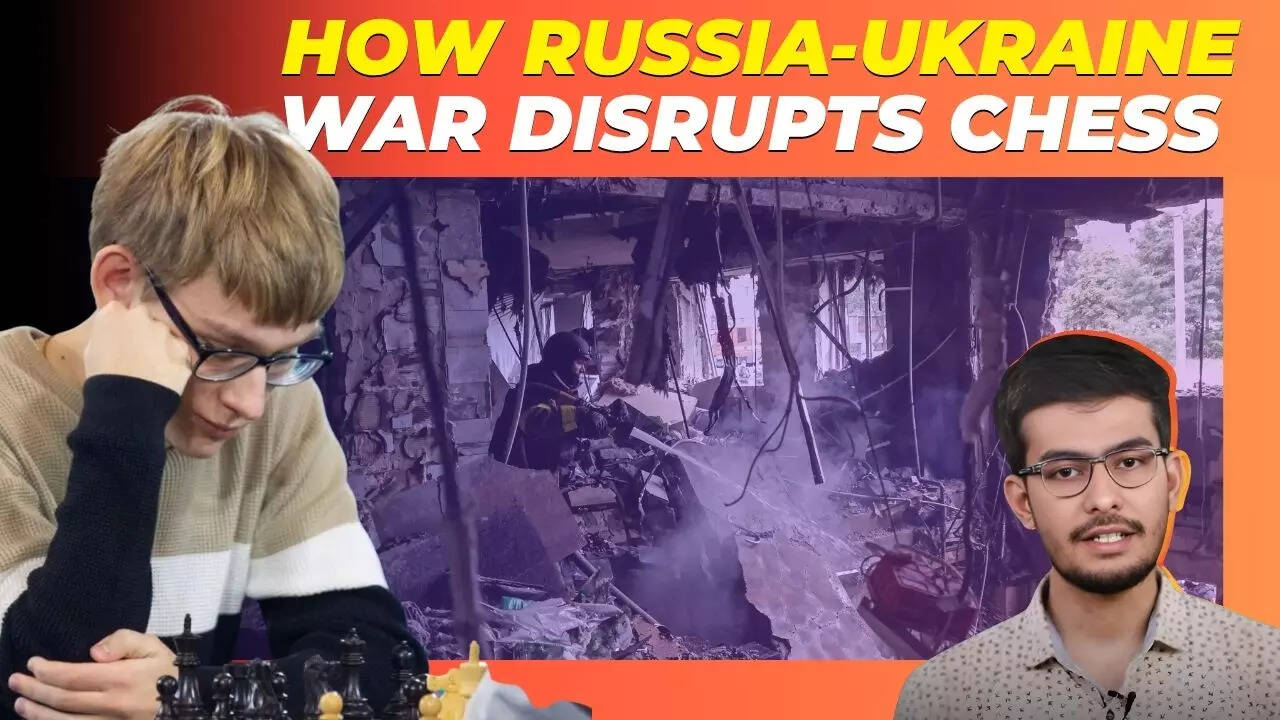Sports
Chess Faces Turmoil as War Disrupts Russian Heritage

The ongoing conflict between Russia and Ukraine has led to significant changes in the world of chess, a sport deeply rooted in Russian history. The Fédération Internationale des Échecs (FIDE) has suspended teams from both Russia and Belarus until January 2026. This decision has forced many players, including former world champion Alexandra Kosteniuk, to make the difficult choice of switching federations.
Historically, Russia has been a dominant force in chess, producing renowned players such as Mikhail Botvinnik, Boris Spassky, Garry Kasparov, and Vladimir Kramnik. The nation’s rich chess culture is now facing challenges as the war in Ukraine continues. The suspension by FIDE has not only affected the teams but also disrupted the careers of individual players striving to maintain their competitive edge.
Younger players are feeling the impact of these changes sharply. For instance, Denis Lazavik, an 18-year-old chess prodigy from Belarus, is currently facing limited local competition due to the suspension. This has created hurdles for his development as he aims to reach a rating of 2700, a benchmark that would position him among the elite players globally. Despite these challenges, Lazavik remains optimistic about his future in the sport, hoping to overcome travel restrictions and continue competing at a high level.
The suspension of Russian and Belarusian teams marks a significant shift in the chess community, reflecting broader geopolitical tensions. Players previously associated with these nations now find themselves navigating a complex landscape, where their affiliations could influence both their careers and opportunities within the sport.
As chess evolves, the repercussions of the war are felt not just on the board but also in the lives of those who dedicate themselves to this intellectual pursuit. The chess community is left to ponder the future of the game, which has long thrived on the contributions of Russian players. The suspension by FIDE underscores the intersection of sport and politics, reminding us that global conflicts can reshape even the most revered traditions.
The effects of these changes will likely extend beyond January 2026. Players may continue to adapt their strategies and affiliations in response to ongoing tensions. This situation serves as a poignant reminder of how international relations can profoundly impact individual lives and careers, even in fields as seemingly detached from politics as chess.
As the chess world adjusts to these new realities, players like Kosteniuk and Lazavik embody the resilience required to navigate an uncertain future. Their journeys will likely inspire others facing similar challenges and highlight the enduring spirit of competition, even amid adversity.
-

 World3 months ago
World3 months agoSBI Announces QIP Floor Price at ₹811.05 Per Share
-

 Lifestyle3 months ago
Lifestyle3 months agoCept Unveils ₹3.1 Crore Urban Mobility Plan for Sustainable Growth
-

 Science3 months ago
Science3 months agoNew Blood Group Discovered in South Indian Woman at Rotary Centre
-

 Sports3 months ago
Sports3 months agoBroad Advocates for Bowling Change Ahead of Final Test Against India
-

 World3 months ago
World3 months agoTorrential Rains Cause Flash Flooding in New York and New Jersey
-

 Top Stories3 months ago
Top Stories3 months agoKonkani Cultural Organisation to Host Pearl Jubilee in Abu Dhabi
-

 Science3 months ago
Science3 months agoNothing Headphone 1 Review: A Bold Contender in Audio Design
-

 Top Stories3 months ago
Top Stories3 months agoAir India Crash Investigation Highlights Boeing Fuel Switch Concerns
-

 Sports3 months ago
Sports3 months agoCristian Totti Retires at 19: Pressure of Fame Takes Toll
-

 Business3 months ago
Business3 months agoIndian Stock Market Rebounds: Sensex and Nifty Rise After Four-Day Decline
-

 Politics3 months ago
Politics3 months agoAbandoned Doberman Finds New Home After Journey to Prague
-

 Top Stories3 months ago
Top Stories3 months agoPatna Bank Manager Abhishek Varun Found Dead in Well









